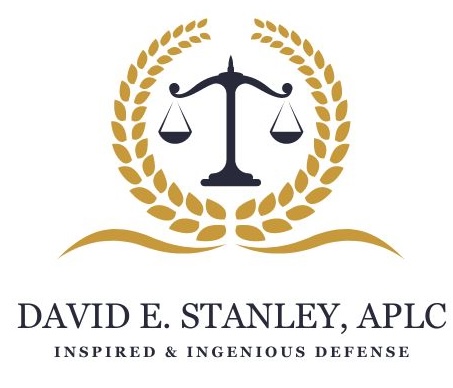Criminal Defense Lawyer
Table of Contents
ToggleThe RICO Act, Sections 1961–68 of Title 18 of the United States Code, describes the areas where the anti-racketeering statute is implemented. The RICO Act changed in the 1970s, 1980s, and 1990s to reflect changes in the legal and commercial landscapes, and our white-collar law team has kept up with the developments.
Contact a Baton Rouge criminal defense lawyer immediately if you or someone you know is charged with breaching the RICO Act. Our professional trial lawyer maintains up-to-date data on state and federal racketeering statutes, allowing us to give our clients unrivaled RICO knowledge. It includes Congress’ inclusion of mail and wire fraud as offenses that might prosecute under the RICO Act.
David E. Stanley, APLC, represents individuals, not large corporations or institutions. Our legal firm has successfully defended clients accused of various white-collar offenses, including RICO crimes. To decide our plan for your defense, we must first evaluate every detail of the charges against you, including all evidence, witness reports, law enforcement records, and others. Our firm will be your zealous advocate in court, and we take a tough stance in defending our clients against RICO charges.
To Schedule An Appointment, Contact David E. Stanley, APLC!
Call 225-926-0200 Now!
Everything You Need To Know About RICO Crimes
What Are RICO Offenses?
RICO offenses fall under the purview of the Racketeer Influenced and Corrupt Organizations Act (RICO). This act was passed in 1970 and entered into effect the following year. The purpose was to bring organized crime to justice. As a result, these crimes are in scarce circumstances with a high level of planning and organization. Even minor offenses in the same line are unlikely to qualify. It is illegal for people or organizations to participate in “racketeering activities or the collection of illicit debt,” according to the US Justice Department.
What Is Racketeering?

Financial gain and extortion are common goals of racketeering. It has long been associated with the Mafia and other forms of organized crime in the United States. Some have characterized it as a solution to a problem that the organization caused, such as threatening local companies and requiring owners to pay for “protection” from the same threats. Racketeering has also been linked to the following issues:
Illegal lotteries
- Prostitution
- Bootlegging
- Violent clashes and mob wars
- Insider trading
- Manipulation of stock prices
One of the goals of the RICO Act was to make it simpler for police to file charges against criminal organization leaders. It has been previously difficult because leaders would have someone else carry out the crime. The person who ordered it might be arrested, but not the person who called it. Technically, they didn’t break the law. However, under the new statute, authorities gained new authority to charge those who provide the commands, not just those who carry them out, allowing them to combat organized crime in a new way.
What Does a RICO Violation Entail?
In 1970, part of the Organized Crime Control Act, the Racketeer Influenced and Corrupt Organizations (RICO) Act was enacted. The goal of this legislation was to outlaw “racketeering conduct.” Racketeering is defined extensively in 18 USC 1961 to cover a variety of crimes, including:
- Embezzlement
- Trafficking in narcotics
- Laundering of funds
- Bankruptcy and identity theft
Racketeering includes crimes such as murder, arson, extortion, and bribery that are illegal under state law, as well as violations of federal laws such as theft, obstruction of justice, enslavement, and murder-for-hire.
However, state and federal authorities can only charge someone under the RICO Act if they show a “pattern of racketeering activities.” It means that within ten years, there have been two or more racketeering convictions for similar goals, with similar players, or against similar victims.
Frequently Asked Questions:
What Are Different Types Of White-Collar Crimes?
Nonviolent crimes with a financial motive are white-collar crimes. Embezzlement, conspiracy, price manipulation, corporate fraud, and tax fraud are standard charges against firms, executives, and government authorities.
Are These Offenses Usually Classified As Misdemeanors Or Felony Offenses?
The penalty for a white-collar crime conviction varies depending on the case’s circumstances; most white-collar defendants face felony charges. It’s critical to realize that a criminal record can significantly influence your life, whether a misdemeanor or a felony.
Can Criminal Investigations Take Place Concurrently With Civil Lawsuits?
Yes. While defending against civil litigation, businesses and people may be the focus of an investigation. Building a solid defense in both cases necessitates a thorough understanding of legal procedures and case law. Lawyer David E. Stanley, APLC, has the dedication and discipline required to handle complex issues.
The Best Criminal Defense Lawyer

Suppose you are under investigation for a RICO crime or have been arrested and charged with racketeering. In that case, you must speak with an experienced criminal defense lawyer as soon as possible. David E. Stanley, APLC, has successfully represented clients in complex federal criminal cases across the country and can provide you with the aggressive legal representation you need during this difficult time. Contact us today to schedule a free consultation and learn more about how we can help you fight your charges.
Call David E. Stanley, APLC, At 225-926-0200 Now!
David E. Stanley, APLC
1055 Laurel Street Suite 2
Baton Rouge, LA 70802
225-926-0200

David Stanley is the founder and principal of David E. Stanley APLC. Since 1983, Mr. Stanley has successfully practiced law from his office in Baton Rouge, Louisiana.


[…] post Everything You Need To Know About RICO Crimes first appeared on David E. Stanley […]